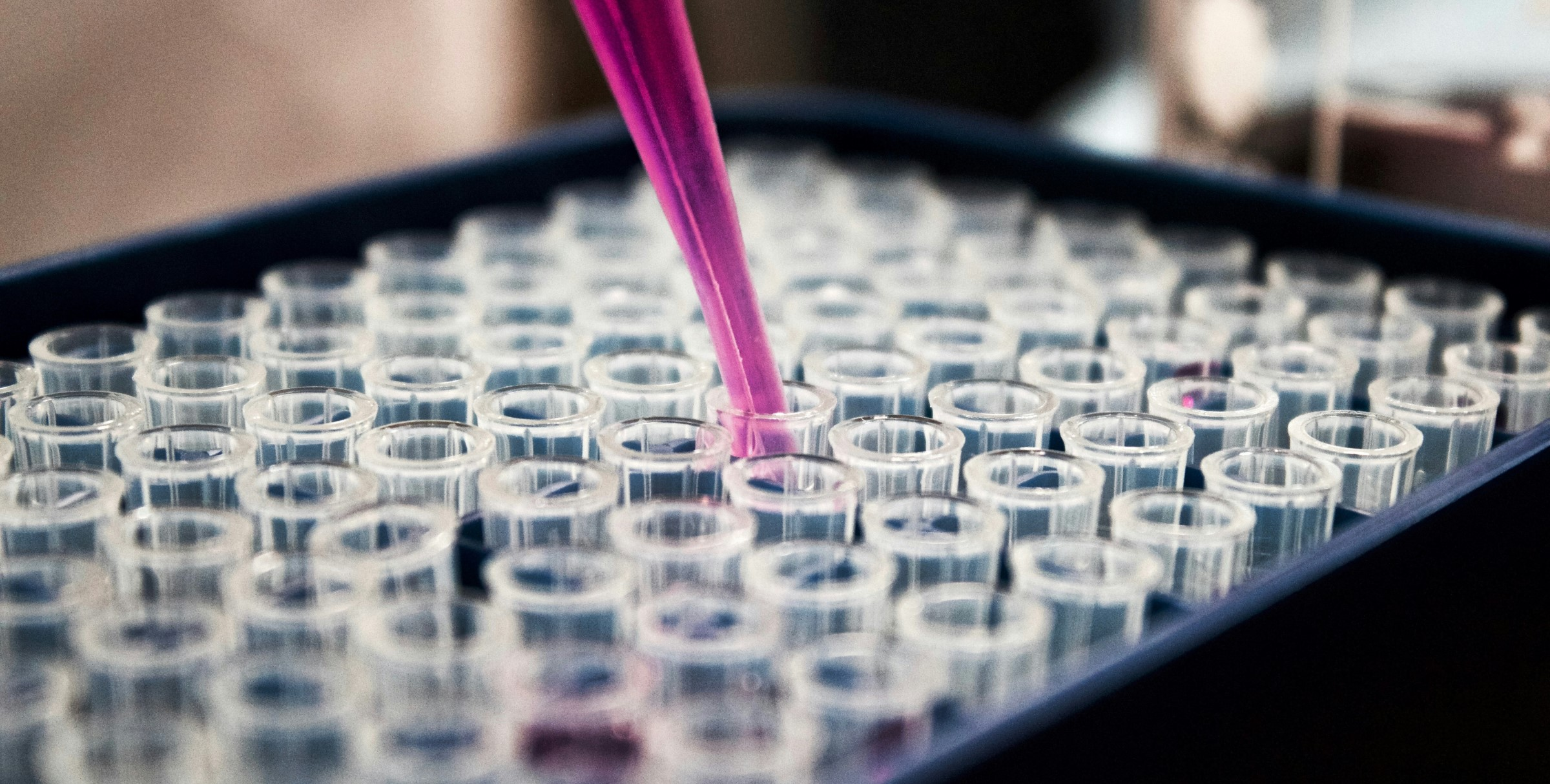I have groin pain. Is it an STD?
Consistent groin pain can be really worrying. When you get it, it’s natural to wonder if something serious might be going on.
While not all instances of groin pain indicate a serious problem, it’s crucial to be aware of what might be causing it. And one of the more common causes of groin pain is STDs.
In this blog post, we’ll explore the various STDs that can cause groin pain. We’ll also discuss other potential causes, ensuring you have a comprehensive understanding of this complex symptom.
Let’s get started.

Are you worried about STIs? Get tested with Better2Know today.
What are STDs?
Sexually transmitted diseases (STDs), also known as sexually transmitted infections (STIs), are a group of infections that are primarily spread through sexual contact. These infections can be caused by a variety of pathogens, including bacteria, viruses, and parasites.
Some STDs can lead to serious complications if left untreated, including pelvic inflammatory disease (PID), infertility, complications in childbirth, and even certain cancers.
What counts as groin pain?
Groin pain can refer to discomfort or pain experienced in the area where the abdomen meets the upper thighs. This area is known as the groin region.
Groin pain can range from a dull ache to sharp, intense pain, and may be localized or radiate to other areas such as the inner thighs, lower abdomen, or genital region.

Don’t let the thought of having an STI affect your peace of mind.
What STDs can cause groin pain?
Groin pain remains one of the most common symptoms of certain STIs. Here are a few STIs that can cause it.
Chlamydia
Chlamydia, a common sexually transmitted disease caused by the Chlamydia trachomatis bacterium, can cause groin pain.
In some cases, individuals with this bacterial infection may experience pain in the lower abdominal or pelvic area. This pain can range from mild discomfort to more severe and persistent aching.
The pain experienced during this infection if often caused by the inflammation and swelling caused by the immune system’s response to the infection. A woman infected with Chlamydia may also experience pain if her infection is left untreated and leads to PID.
Groin pain associated with Chlamydia may be accompanied by other symptoms such as abnormal vaginal or penile discharge, painful urination, and bleeding between periods or after sexual intercourse in women.
Gonorrhoea
Gonorrhooea, another common sexually transmitted infection (STI), can also cause groin pain in certain cases. During a Gonorrhoea infection, Neisseria gonorrhoeae bacteria infect the urinary tract, causing inflammation, pain, and swelling in the genitals and groin area.
In men, the infection can spread from the urethra to the epididymis (the tube that carries sperm from the testicles), causing a condition known as epididymitis. This can lead to pain and swelling in the groin area, as well as tenderness in the testicles.
Similarly, in women, untreated Gonorrhoea can spread to the fallopian tubes and cause pelvic inflammatory disease (PID), which may present with groin or lower abdominal pain.
Mycoplasma
Mycoplasma is a sexually transmitted disease that can cause genital infections in both men and women.
In some cases, individuals infected with Mycoplasma may experience groin pain as a symptom. This pain can range from mild discomfort to more severe and persistent aching in the groin or pelvic area.
Like Chlamydia and Gonorrhoea, Mycoplasma bacteria infect the urinary tract, leading the inflammation and pain in the genitals and groin.
Ureaplasma
Ureaplasma is another bacterial infection that can potentially lead to groin pain.
Like Chlamydia, Gonorrhoea, and Mycoplasma, a Ureaplasma infection can lead to epididymitis in men and PID in women, along with other fertility problems.
Herpes
Herpes is a well-known viral infection that can cause a range of symptoms, including groin pain in some cases.
Genital Herpes, most often caused by Herpes Simplex Virus Type 2 (HSV 2), can lead to painful sores or blisters in the genital area, which includes the genitals, anus, upper thighs, and groin.
During an initial Herpes outbreak, individuals may experience intense groin pain accompanied by the appearance of painful blisters or lesions. This pain can be severe and may radiate to the inner thighs or lower abdomen.
Even during recurrent outbreaks, some individuals may experience milder groin pain or discomfort.
Syphilis
Syphilis, an STI caused by the bacterium Treponema pallidum, can present with many symptoms, including groin pain.
During the secondary stage of Syphilis, which typically occurs several weeks to months after the initial infection, individuals may develop a rash, fever, and swollen lymph nodes.
In some cases, this stage can also be accompanied by groin pain with swollen inguinal lymph nodes in the groin.
The groin pain associated with Syphilis may be dull or aching and can be accompanied by other symptoms like fatigue, sore throat, swollen glands, and muscle aches.
If it’s an STD, will I get symptoms other than groin pain?
Not necessarily.
Most STDs are completely asymptomatic, meaning they will not produce any discernible symptoms.
In other instances, they may cause some symptoms that you don’t even notice.
In still other instances, they may cause only one or two symptoms that can easily be mistaken for other infections and conditions.
Every person experiences each infections differently. That’s why the choice to get tested shouldn’t be based on the symptoms you experienced, but on the actions you took.

Don’t leave your sexual health to chance. Get tested for STIs today.
How did I get the STD that caused this groin pain?
If an STD is causing your groin pain, you likely got it through unprotected sexual activity.
- Vaginal sex: This is perhaps the most common mode of transmission for STIs.
- Anal sex: Anal sex can sometimes more easily transmit STIs. The anus is prone to tearing during anal sex, making the transmission of certain infections more likely if mucous membranes are exposed to blood.
- Oral sex: Oral sex is a common mode of transmission for certain infections, such as oral Chlamydia infections or oral Herpes infections. You are more likely to get infected if you perform oral sex on an infected person than the other way around.
- Genital contact: Some STIs like Syphilis and HPV can be transmitted by simple skin-to-skin contact with an infected person’s genitals.
However, you can get STIs in other ways:
- Blood transfusions: Blood-borne STIs like HIV and Hepatitis B can be transmitted through contaminated blood transfusions, though this is increasingly uncommon in the UK.
- Sharing needles: Sharing needles for intravenous drug use can transmit certain STIs like HIV.
- Sharing personal hygiene items: Sharing razors or toothbrushes with an infected person can put you at risk of contracting infections like Hepatitis B and Hepatitis C.
- Unsterilised tattooing equipment: If tattooing equipment isn’t properly sterilised between uses, it can transmit infections like HIV.
- Kissing: Mouth-to-mouth kissing is the most common way to get Oral Herpes.
- Childbirth: Many STIs can be passed from mother to child during childbirth. As the infant passes through the birth canal, they can come in contact with bacteria and viruses and become infected themselves.
What else can cause groin pain?
While your groin pain may be caused by an STI, some other things could be causing it.
Here’s a (non-exhaustive) list of potential causes.
Muscle strain
The groin area is home to several important muscles, including the adductor muscles, which are responsible for pulling the legs together. These muscles can become strained or overworked due to intense exercise, sports that involve rapid lateral movements, or sudden changes in direction.
When these muscles are strained, individuals may experience groin pain ranging from mild discomfort to severe, sharp pain, particularly during movements that involve stretching or contracting the affected muscles.
Hernia
A hernia occurs when an internal part of the body, such as a portion of the intestine or abdominal tissue, protrudes through a weakness or opening in the surrounding muscle or tissue wall.
Hernias can occur in the groin region, where they are known as inguinal hernias. These hernias can cause a bulge or swelling, accompanied by pain or discomfort, especially when coughing, straining, or lifting heavy objects.
The pain associated with an inguinal hernia may be dull or aching, or it can be sharp and intense, depending on the severity of the condition.
Kidney stones
As kidney stones travel through the urinary tract, they can become lodged in the ureters, the tubes that connect the kidneys to the bladder. When this happens, it can lead to severe pain in the groin area, as well as the lower abdomen or back.
Osteoarthritis
Osteoarthritis primarily affects the cartilage that cushions the joints, leading to its gradual breakdown over time.
When osteoarthritis affects the hip joint, it can result in groin pain due to the proximity of the joint to the groin area. As the cartilage wears down, the bones may begin to rub against each other, causing inflammation, stiffness, and pain.
Testicular torssion
Testicular torsion occurs when the testicle rotates, twisting the cord that brings blood to the testicle. This can cause sudden, intense groin or scrotal pain, often accompanied by swelling, nausea, and vomiting.
If left untreated, testicular torsion can lead to the loss of the affected testicle due to a lack of blood supply.
Final thoughts
Groin pain can be a concerning symptom with lots of potential causes, from STDs to other medical conditions.
If you’re experiencing persistent or severe groin pain, it is crucial to seek medical attention to determine the underlying cause. Better2Know’s reliable and confidential urine, swab, and blood tests will provide you with the answers you need, allowing you to take the necessary steps toward proper treatment and care.

If you don’t know what STI to get tested for, try Better2Know’s Full Screen, which test for the UK’s 7 most common STIs.
Categories
- Awards
- Bacterial Vaginosis
- Blood Tests
- Cervical Cancer
- Chlamydia
- Condoms
- Covid-19
- Gardnerella
- Genital Warts
- Gonorrhoea
- Health and Wellness
- Hepatitis A
- Hepatitis B
- Hepatitis C
- Herpes
- HIV
- HIV (AIDS)
- Home Testing
- HPV
- Instant Testing
- MSM
- Mycoplasma
- News
- Non-Specific Urethritis
- PAP Smear
- Pre-Pregnancy
- Sexual Health
- STD Symptoms
- STD Tests and Screens
- STI Transmission
- Stigma
- STIs
- Swab Tests
- Syphilis
- Trichomonas
- Ureaplasma
- WSW
- Zika




